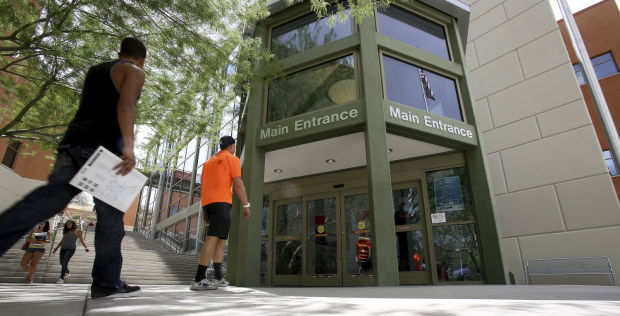PHOENIX — Attorney General Mark Brnovich is making a new attempt to prevent “dreamers” from getting the same lower resident tuition rates as other Arizonans.
Brnovich on Wednesday filed a notice of appeal of the May 5 decision by Maricopa County Superior Court Judge Arthur Anderson that those accepted into the Obama administration’s Deferred Action Program for Childhood Arrivals makes them “lawfully present” in the United States. And that, said the judge, makes them eligible for in-state tuition at Maricopa Community Colleges despite a 2006 voter-approved law.
What’s ultimately decided will have far wider implications. A final ruling by the Arizona Supreme Court would affect not only other community colleges like Pima Community College, which also offer in-state tuition to DACA recipients, but the state university system that in May adopted a similar policy.
Brnovich press aide Ryan Anderson said his boss is filing the appeal because he believes the judge got it wrong.
He acknowledged that DACA recipients have no fear of being deported. They also are issued federal documents entitling them to work legally in this country.
But he said none of that is legally relevant.
He pointed out that what voters approved in 2006 says that someone who is “not a citizen or legal resident of the United States or who is without lawful immigration status is not entitled to classification as an in-state student.” That same law denies them any type of financial assistance that comes from state funds.
Put simply, he said the judge’s finding that dreamers are “lawfully present” does not satisfy the requirements of the law.
“Non-deportation does not necessarily equate to ‘lawful status’ in this country,” Brnovich’s press aide said. “Where we believe that Judge Anderson perhaps erred in his decision was to take that giant leap and to equate ‘presence’ to ‘status.’”
And Brnovich’s aide said the decision to appeal has nothing to do with politics or even immigration.
“It’s about the rule of law,” he said. “We feel that voters were clear with Proposition 300 when they decided that individuals who are not in this country lawfully should not be given public benefits, including in-state tuition.”
If and when the case ultimately finds its way to the Supreme Court the precedent will cover all public colleges.
In May, the Arizona Board of Regents directed the state’s three universities to grant in-state status to anyone accepted into the DACA program if they meet other residency requirements.
That change cuts tuition costs by more than half for such students. At the University of Arizona, for example, a DACA student starting this fall would pay tuition of $11,403 instead of $32,630.
And PCC, like its Maricopa counterpart, offers in-state tuition to DACA recipients.
The policy has allowed students to pay the in-state rate of $70.50 per credit hour, a figure that will go up to $75.50 next school year. That translates to $4,530 for someone seeking an associate’s degree.
Without the policy, students next year would have to pay the out-of-state rate of $352 per credit hour, or $21,120 for the same degree.
Rufus Glasper, chancellor of the Maricopa Community Colleges system, said the policy on DACA recipients will make a real difference.
He said after voters approved the measure in 2006 requiring the higher tuition, student enrollment dropped by about 15,000. Glasper said college officials estimated from 10,000 to 12,000 of those students were not here legally.
After Maricopa adopted its new policy, Glasper said about 1,200 DACA recipients have qualified for in-state tuition.





